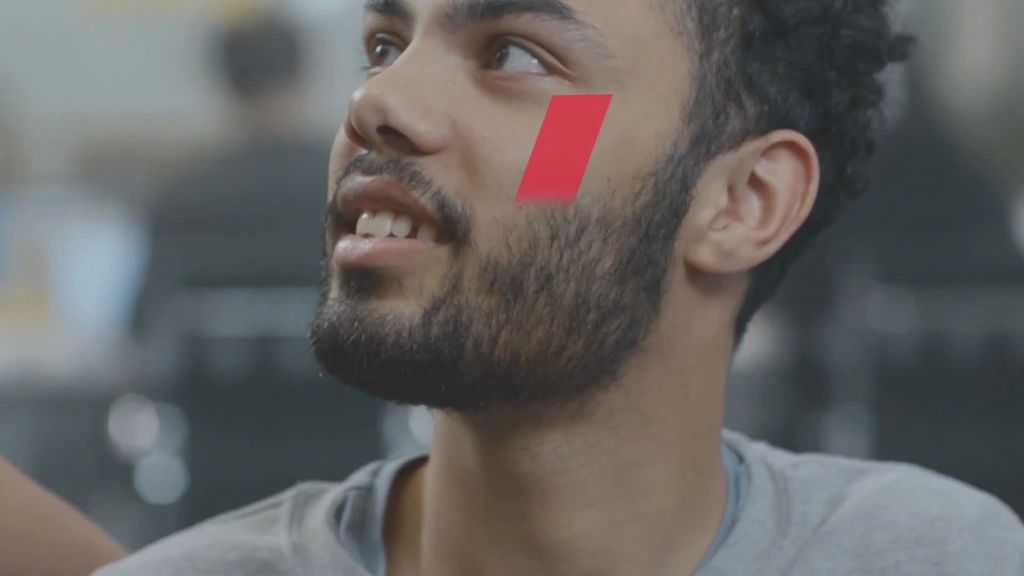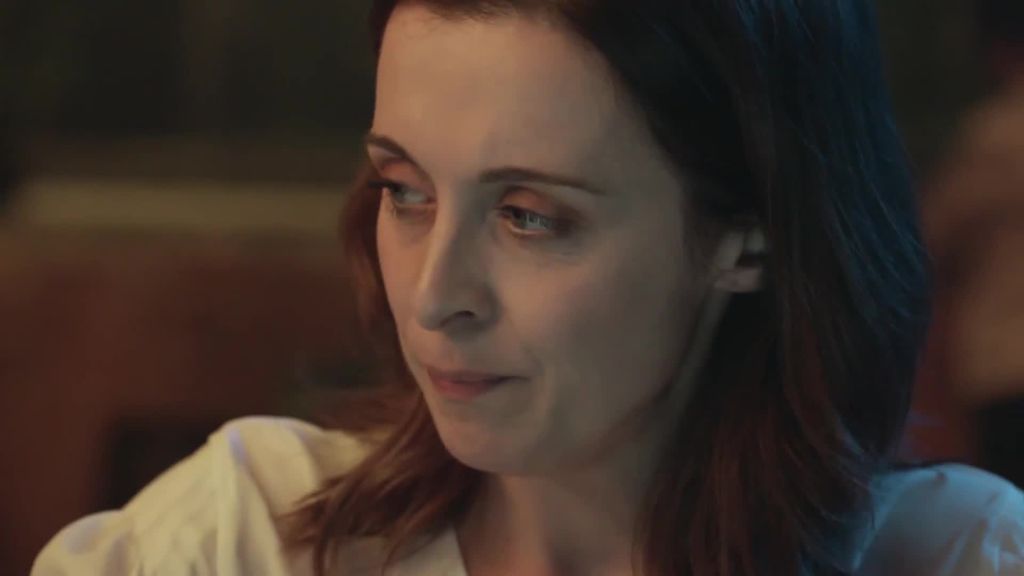What's luck got to do with it?
As Co-Founder of Lucky Generals and author of a book called Go Luck Yourself, Andy Nairn is no stranger to the workings of Lady Luck. Here, he discusses why luck is the natural bedfellow of hard work, and reveals how we can all make ourselves more lucky.
Are you wary of black cats? Would opening an umbrella indoors fill you with dread? Does today's date mean you have decided not to get out of bed?
Superstitious or not, most of us would prefer to avoid bad luck but, according to a book by Lucky Generals Co-Founder Andy Nairn, we're also very good at ignoring positive outcomes that could be attributed to good luck.
In Go Luck Yourself, Nairn examines how luck is often considered a four-letter-word in business circles but that, in truth, fortune plays a part in every success story as well as in every failure. Below, Nairn discusses the business world's relationship with luck, why people shy away from letting it anywhere near their successes, and why the 'Can-If' approach should be more widely adopted.
What initially prompted you to write a book about luck?
Last year, I found myself thinking about luck quite a lot. Mostly in terms of the bad luck that the pandemic had dumped on all of us, but also in terms of my privilege as an older, white bloke. Luck seemed to be a constant factor in so many of the big stories affecting the world and I realised, to my embarrassment, that I didn’t know much about it, despite the word appearing in my agency name. So, like a typical planner, I decided to do some research, and the book was the result.
Luck seemed to be a constant factor in so many of the big stories affecting the world and I realised that I didn’t know much about it, despite the word appearing in my agency name.
In particular, I got quite quickly to the idea of a book about luck that could bring luck to others. I decided early on to give all my royalties to a brilliant organisation called Commercial Break, who help working class kids get into the industry and thrive. Apart from being a great cause, that helped motivate me through the writing process: I could hardly pull out once I’d said I was going to support them, could I?

Above: Nairn's book, Go Luck Yourself, the profits from which will be donated to Commercial Break.
The old adage states that 'it's better to be lucky than good', but would you say that the two things complement each other?
Yes, luck is often set up as the enemy of talent and hard work whereas, really, it’s a natural bedfellow. Any creative person will know that you can’t just sit back and hope that good fortune will come your way (as Stephen King says: “Waiting for inspiration is for amateurs.”).
But, equally, you can’t always rely on your genius to come to your rescue and sometimes slogging away at a problem actually makes things worse. More often than not, you need a combination of luck, talent and hard work. The good news is that you can actually increase your chances of success, by being more mindful of your luck and deliberately stacking the odds in your favour – and that’s what the book is about.
Maybe we should ask ourselves a few tougher questions when something goes wrong, rather than writing it off as pure misfortune.
Another saying states that 'you make your own luck', but no one ever seems to attribute bad luck to any actions which they have taken; is that just human nature?
Actually, we tend to attribute achievements to our own skills and endeavour – and are more likely to write off our failures as being down to bad luck. We’re like: “My film went viral because I am brilliant, but it didn’t win at Cannes because one of the jurors doesn’t like me!”.
Neither position is particularly helpful. We’re better to appreciate the lucky breaks we’ve had in our success stories, because that way we’ll be less likely to be complacent in future. Then maybe we should ask ourselves a few tougher questions when something goes wrong, rather than writing it off as pure misfortune.
Hostelworld – LEAKED: Charlie Sheen Cooks Up In Hostel
Hostelworld – LEAKED: Charlie Sheen Beats Teen With Bat In Hostel
Hostelworld – LEAKED: Charlie Sheen’s Private Binge In Hostel
Hostelworld – LEAKED: Charlie Sheen In 8am Hostel Shots Shocker
Hostelworld – LEAKED: Charlie Sheen Bashes Bishop In Hostel
Hostelworld – LEAKED: Charlie Sheen Sleeps With 7 People In Hostel
Above: A chapter in Nairn's book, explains how an at first unhelpful call from Charlie Sheen's agency morphed into a lucky break that saw him star in a celebrated Hostelworld campaign.
Why do you think that people shy away from the phenomenon of luck?
It’s a very deep-rooted Western hang up: in other parts of the world, it’s not a taboo at all. We can blame the Victorians as they were obsessed by the Protestant work ethic: this idea that success was God’s way of rewarding endeavour, and poverty was punishment for the feckless. Fast-forward a century or so and we’re still told that the answer to everything is to work harder and harder. Practise more and more. Clock up your 10,000 hours. Stay later at the office. Come in at the weekend.
We can blame the Victorians as they were obsessed by the Protestant work ethic: this idea that success was God’s way of rewarding endeavour, and poverty was punishment for the feckless.
As I say, I’m the last person to deny the power of hard work, but sometimes the answer is more likely to come if you go for a walk, watch a film, take a shower or play a game. The science is very clear on this and there are also lots of proven methods for improving your luck. So, while cynics sometimes write off serendipitous breakthroughs as mere flukes, you can actually make 'happy accidents' much more likely to happen.
timeTo – Where Do You Draw The Line? - New Recruit
timeTo – Where Do You Draw The Line? - Still Working?
timeTo – Where Do You Draw The Line? - Celebration
Above: Another chapter in Go Luck Yourself concerns how luck can push you to explore 'the grey areas', as shown in Lucky Generals' campaign for the #timeTo movement.
A lot of the examples in the book come from your own experiences and campaigns on which you have worked; do you think that it's hard for people to embrace the notion that success isn't always entirely down to their own actions?
Yes, I think it’s hard because we’re understandably proud of the things we’ve achieved. When I admit I’ve been very lucky, I don’t mean that I’m a talentless sloth who deserves no credit whatsoever, I just find it much more truthful and liberating to acknowledge when I’ve had a bit of good fortune. It’s more generous, too.
I don’t think I’d like to work with anyone who was so full of themselves that they would never admit to benefiting from luck!
That’s why I hate the idea of the 'self-made man': it ignores the fact that any successful person will have benefited from family, friends, teachers, colleagues, bosses, partners and so on. Plus, government support in the form of things like transport, education, health systems and so on. Recognising all those external factors isn’t just good manners, it will attract others too. I don’t think I’d like to work with anyone who was so full of themselves that they would never admit to benefiting from luck!

Above: Lucky General Co-Founder and author of Go Luck Yourself, Andy Nairn.
There are a number of stories in the book which illustrate how perceived bad luck actually ends up being the catalyst for a positive move forward; is luck a question of perception?
Yes, that’s one of the main lessons in the book. It’s something that Eastern religions and philosophies are strong on, so maybe Western businesses could learn from them. Alternatively, there’s a lot of science in this area too. And I love what the author Cormac McCarthy says: “You never know what worse luck your bad luck has saved you from.” The thing all these perspectives have in common is a recognition that blessings often come in disguise. I think that’s particularly true of great creative work, which is often born out of hardship or frustration. So, lots of the stories in the book are about channelling those negatives into something positive.
I love what the author Cormac McCarthy says: “You never know what worse luck your bad luck has saved you from.”
In one chapter, Lucky Limits, you outline the 'Can-If' approach to ideas and suggestions; do enough advertising businesses use that more positive approach to constraints?
This is a great technique, from one of my favourite business books: A Beautiful Constraint, by Adam Morgan and Mark Barden. You should really read the whole thing, but the gist is that businesses should stop using language like “we can’t do this because...” and start saying “we can do this if...”. It works for all sorts of limitations.
For instance, instead of moaning that “we can’t make this idea for that budget or on that timescale”, it pushes you to say “we can make it if we adjust the execution or process like this.” Funnily enough, the authors originally took the phrase from a factory guy at Warburton’s bakery, but I reckon it applies brilliantly to our world. After all, we’re manufacturers too, right?

Above: Adam Morgan and Mark Barden's book, A Beautiful Constraint.
What can people do to make themselves more lucky?
There are four things, really. First, you can appreciate what you already have: there’s lots of evidence that shows that being mindful of this also generates further success. This is particularly true in our world, where organisations often overlook assets that are sitting right under their noses. Then, secondly, you can be more vigilant: creative opportunities can present themselves anywhere and at any time, so you need to fill your time with diverse stimuli, get away from your desk and join the dots from different parts of your life.
Thirdly, you can get better at turning misfortune into good fortune: as I’ve already said, the difference between these is often one of perception, and a lot of great ideas are born out of bad luck. Then, finally, you can practise being lucky: by this I mean deliberately work in a way where serendipity is more likely to flourish.
How can you consciously create a bit of space in your process for unexpected stuff to happen?
A lot of creative companies are prioritising these techniques right now, including Apple (whose office layout is designed to foster cross-fertilisation), Google (who ring-fence time for passion projects), or Paddy Power (who have a Mischief department, where the normal marketing rules don’t apply). But my favourite quote on this whole subject is from the record producer Quincy Jones: “Let the Lord walk through the room.” How can you consciously create a bit of space in your process for unexpected stuff to happen?

What's the luckiest work-related thing that's ever happened to you?
I think I will have to say meeting my partners Helen Calcraft and Danny Brooke-Taylor (otherwise it could prove unlucky for me). Seriously, you do need luck when you’re launching a start-up. The chemistry is crucial, and you need all the planets to align at the same time. Then, when you have setbacks, as you inevitably will do, you need to get over them together. While we might have the odd disagreement, I often remind myself how jammy I am to have them (even if they will almost certainly take the piss out of this bit).
Insurance companies report that there are actually fewer accidents on [Friday 13th] than others because people tend to be more cautious.
Is there any reason people should be more unlucky today, Friday 13th, than yesterday or tomorrow?
None whatsoever. In fact, insurance companies report that there are actually fewer accidents on this day than others because people tend to be more cautious. So, there you go, yet more evidence that bad luck can turn out to be good luck! We’ve got no excuses, we can all take practical steps to improve our creative fortunes. So, give it a try and either way, Go Luck Yourself!
)




 + membership
+ membership





















